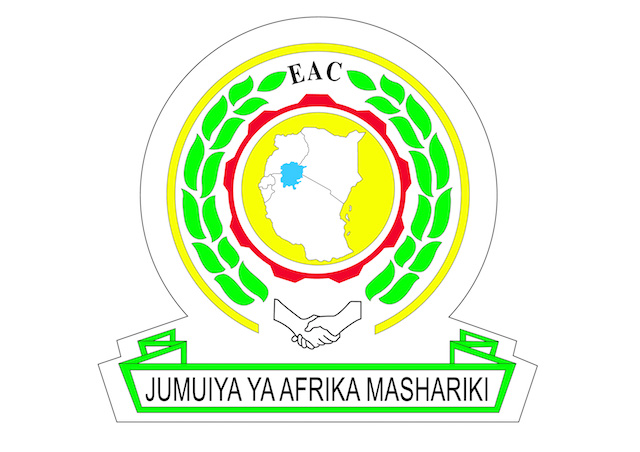
Court dismisses Case challenging Treaty provision of 60 Day time limit for Filing a Dispute at EACJ
East African Court of Justice; Arusha, Tanzania; 31 March 2017:
The First Instance Division today as it concluded its sessions, dismissed a case filed by Mr. Steven Deniss from The United Republic of Tanzania against the Attorneys General of the Republics of Burundi, Kenya, Rwanda, Uganda, United Republic of Tanzania and the Secretary General of the East African Community.
The case which was filed on July 10th 2015 in the First Instance Division complained that the provisions of Article 30(2) of the Treaty Establishing the East African Community, about the two (2) months limitation period for filing a matter before the regional court as specified under that Article 30(2) of the Treaty, that it is not only very restrictive but also unjust and discriminatory.
The Applicant further complained that the Provision does not provide ample time for obtaining legal assistance, conducting legal research, documentation of the evidence and securing witnesses expected of a reference before the East African Court of Justice hence has denied him just like other citizens of the Partner States access to justice which is contrary to the fundamental and operational principles of the Treaty as set out in Articles 6(d) and 7(1) (a). He also alleges that the process by which Article 30 (2) of the Treaty was introduced is illegal and that the 6th Respondent had failed in its duty to advice the Partner States to rectify it and equally the 1st to 5th Respondents have failed to cure the illegality in their responsibility to ensure that the objectives of the Treaty are achieved.
In its judgment, the Court said that it has the jurisdiction to determine the legality of Article 30 (2) of the Treaty. In its determination the court stated that it would not go far to declare Article 30 (2) a violation of Articles 6(d) 7 (1) (a) and 7 (2) of the Treaty. That instead that Article simply clarifies the procedural context within which substantive provisions of Articles 6(d) and 7 (2) should be applied. Court again explained that no evidence was adduced before Court as sufficiently establishes the contradictions it poses viz-a-viz Articles 28 and 29 or irrationality of the said considerations.
That it is a matter that, the Court propose, should receive attention to the relevant organs of the EAC, because a people centred and market driven co-operation as stipulated in the provisions of the Treaty as well as rule of Law, must be of necessity include the notion of equal access to justice by all parties. To court Article 30 (2) it seems that the time limitation in the said Article is intended to facilitate the expeditious realization of the Community’s objectives as detained in Article 5 (2) of the Treaty by forestalling open ended avenues for litigation that could derail the integration process. Further, that for the same reasons, the spirit and letter of the Treaty would be well served if such an expedient approach were equally applied to the Partner States and the Secretary General.
The Court also added that, on the issue whether the Secretary General (6th Respondent) has failed in his responsibility to ensure the achievement of the objectives of the Treaty, especially under Article 71 of the Treaty on the functions of the Secretariat on its duty to conduct investigations, collect information or verify of matters that affect EAC. The Court said that, the generalized invocation of Article 71 of the Treaty and imputation of failure by the Secretary General in his mandate is a misguided approach to litigation.
In conclusion, the Court said that regarding the alternative prayers for orders to affect an amendment to Article 30(2) of the Treaty for the 2- months limitation period be increased to 6-months, or to clothe this Court with the discretion to enlarge the said limitation period, on this issues the Court held that it has no jurisdiction to make orders, the effect of which would be to amend the Treaty. The Court therefore dismissed the Reference and ordered each party to bear its own costs.
The Court today ended its sessions which resumed in February and will sit again in May-June 2017.
The Judges delivered the judgement were Honorable Lady Justice Monica Mugenyi (Principal Judge), Justice Isaac Lenaola (Deputy Principal Judge), Justice Dr. Faustin Ntezilyayo all of the First Instance Division.
- ENDS -
Notes to Editor:
The Reference rose from the allegations that the Applicant was shot, his property lost and he was then forcefully expelled to Rwanda from the Kagera Region of Tanzania by the agents of the Government of Tanzania but was unable to challenge those actions because of the limitation imposed on him by Article 30(2) of the Treaty.
Article 30 (2) provides that: The proceedings provided for in this Article shall be instituted within two months of the enactment, publication, directive, decision or action complained of, or in the absence thereof, of the day in which it came to the knowledge of the complainant, as the case may be;
For more information, please contact:
Yufnalis Okubo
Registrar
East African Court of Justice
Arusha, Tanzania
Tel: +255 27 2162149
mail: Okubo [at] eachq.org
www.eacj.org
About the East African Court of Justice:
The East African Court of Justice (EACJ or ‘the Court’), is one of the organs of the East African Community established under Article 9 of the Treaty for the Establishment of the East African Community. Established in November 2001, the Court’s major responsibility is to ensure the adherence to law in the interpretation and application of and compliance with the EAC Treaty.
Arusha is the temporary seat of the Court until the Summit determines its permanent seat. The Court’s sub-registries are located in the respective National Courts in the Partner States.

